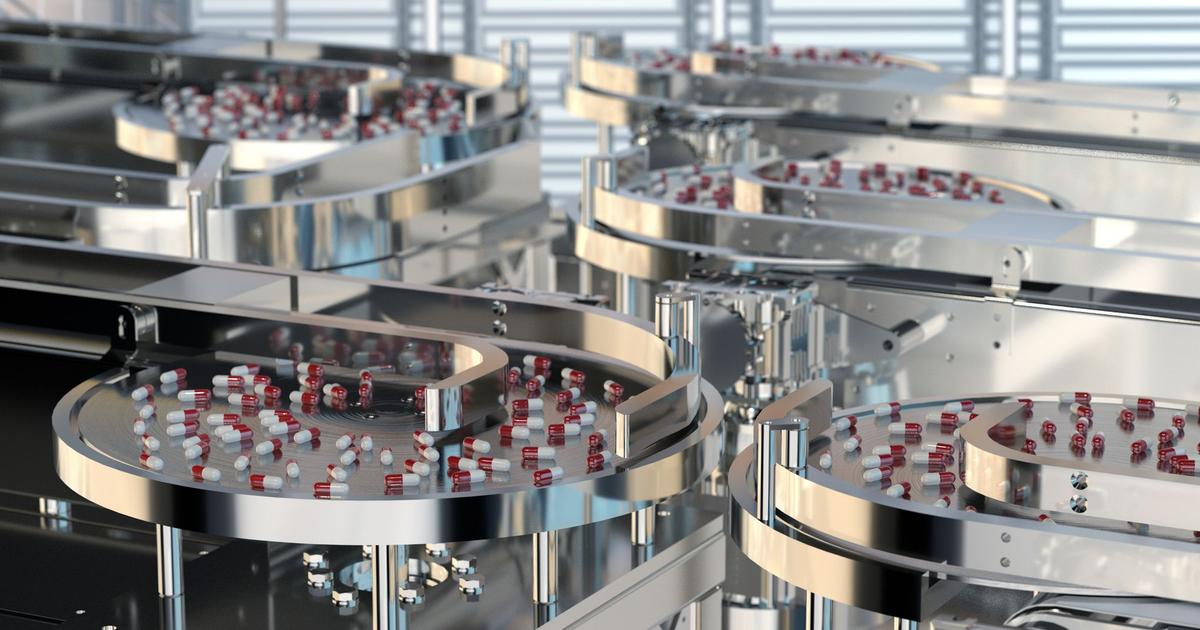From fever syrup to anticancer drugs: pharmacies are sounding the alarm because of the shortage of medicines
Created: 09/16/2022, 16:21
By: Lucas Maier
There is currently scarcity in almost every nook and cranny.
Now the pharmacists' association is sounding the alarm.
Delivery bottlenecks reach record levels.
Kassel – Whether it's toilet paper, sunflower oil or AdBlue: In Germany, shortages have been almost accustomed since the beginning of the corona and energy crisis.
While scarcity is manageable in some areas, it can quickly become a hazard in others.
On World Patient Safety Day, the Pharmacists' Association is now warning of an increase in supply bottlenecks for medicines in Germany.
The health
magazine Apotheken Umschau
is also sounding the alarm.
Crisis in the pharmacies: more than 250 medicines are not available
A wide variety of medicines are affected by the ever-increasing shortage.
More than 250 preparations are currently reported as not being available, as reported by the
German Press Agency (dpa)
.
Experts see reasons for the accumulation of bottlenecks in “the globalization of the pharmaceutical industry and the concentration of production in a few companies”, as the
Apotheken Umschau
writes.
"The problem is very important, you have to say that clearly," said the vice-chairman of the pharmacists' association, Hans-Peter Hubmann, to the
dpa
.
Medical care in the crisis: The pharmacists' association warns of supply bottlenecks for medicines.
(Symbol photo) © IMAGO-Images/Wolfgang Maria Weber
Medicines are scarce in some places: the problem is doubled in comparison
Compared to the situation five years ago, more than twice as many products are affected today.
In addition to niche products, these also include common preparations such as ibuprofen, the association of pharmacists reports.
For Hubmann, there are two main reasons for the shortage, as he told the
dpa
.
Similar to the
Apotheken Umschau, the representative of the pharmacists' association sees
a main problem in the "reduction in production diversity in Europe".
As an example, he cites the production of fever juice.
Crisis in Europe: fever juice is only produced at one location
Since the production of fever juice in Europe is no longer economically viable due to "fixed prices and the pressure of the cash registers", all productions except one have been closed.
Hubmann names so-called “supply chain disruptions” as the second cause.
Since the active ingredients are mostly produced in the Global South, production also comes to a standstill in Europe if they can no longer be supplied.
"That's why we have been demanding for a long time that the production of active ingredients must take place in Europe again," concludes Hubmann to the
dpa
.
also read
Do not simply dry laundry in the apartment: it can be expensive and dangerous
WhatsApp soon no longer free?
Messenger apparently before a huge change
The health economist Professor Volker Ulrich from the University of Bayreuth countered this in an interview with the
Apotheken Umschau
: "From an economic point of view, globalized supply chains are fundamentally important and correct".
In his opinion, it is enough to make this globalized system, which has been heavily criticized by others, as robust as possible.
A first step here could be a Europe-wide reporting system for bottlenecks.
Work is already underway on such a thing, as the
Apotheken Umschau
writes.
Pharmacies save what can still be saved: the extra effort increases immensely
Whether such a system can solve the problem of drug shortages seems questionable.
But the pharmacies would definitely make their work easier, as the
Apotheken Umschau
writes.
Because when there is a shortage of medicines, it is often up to pharmacists to compensate for the shortage.
If the active ingredients are in stock, pharmacies can produce medicines themselves.
Otherwise, an attempt is made to import the drug from abroad or to switch to an alternative active ingredient.
This leads to an additional weekly workload of around 5.1 hours for the pharmacy teams in Europe, as a study by the Association of Pharmacists in the European Union (ZAEU) found out.
With the supply bottlenecks, frustration is also finding its way into the pharmacies.
(Lucas Maier)













/cloudfront-eu-central-1.images.arcpublishing.com/prisa/IGZ7GOCXZ5GUPAQ2HWGK6Z76BU.jpg)